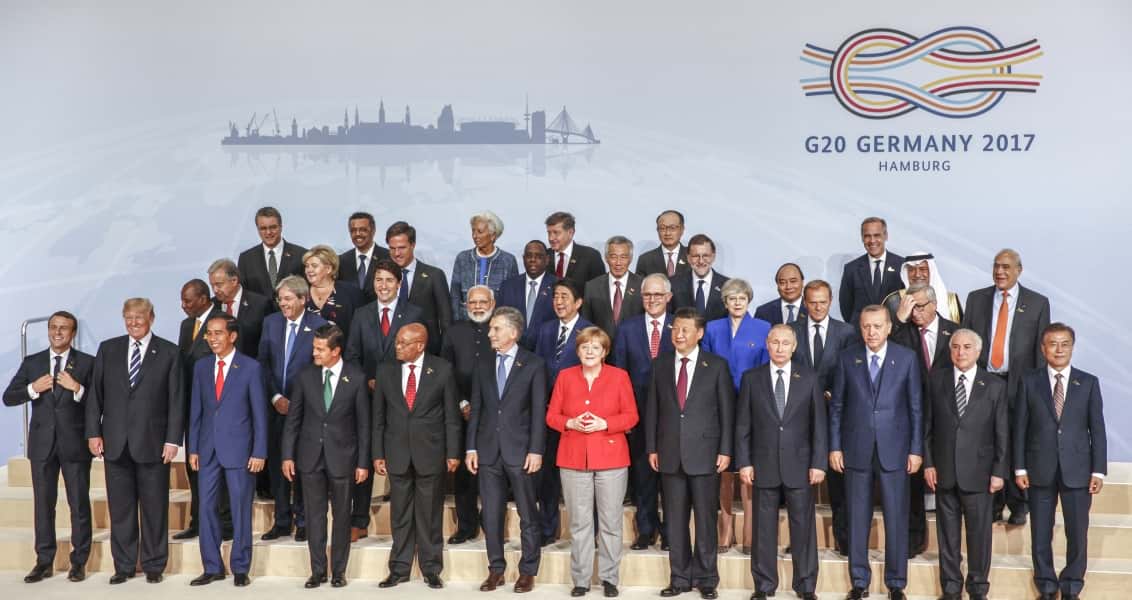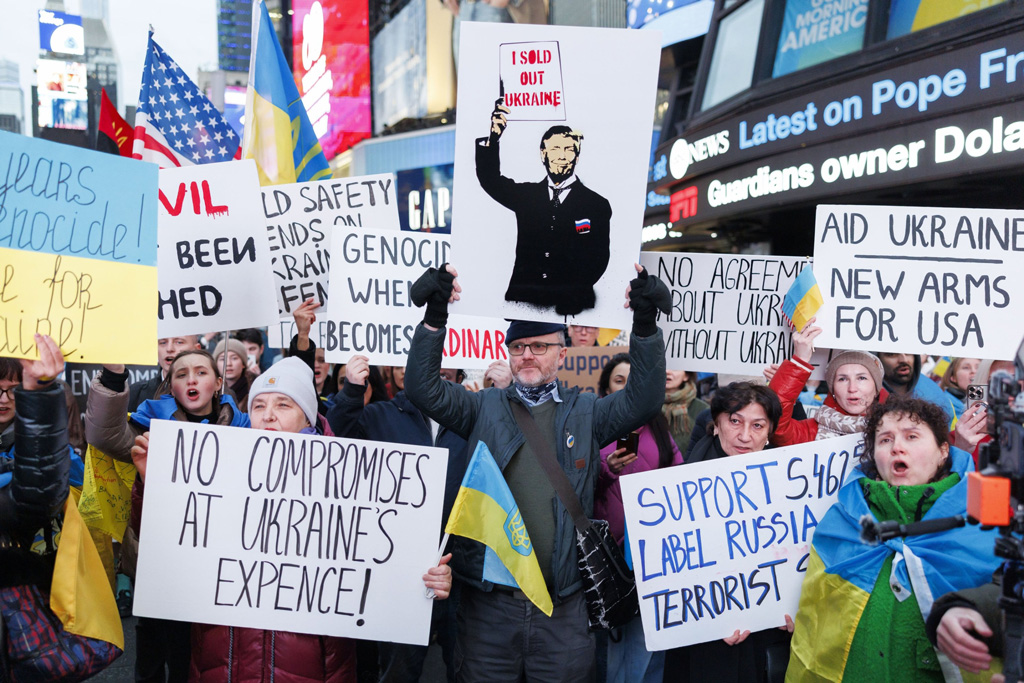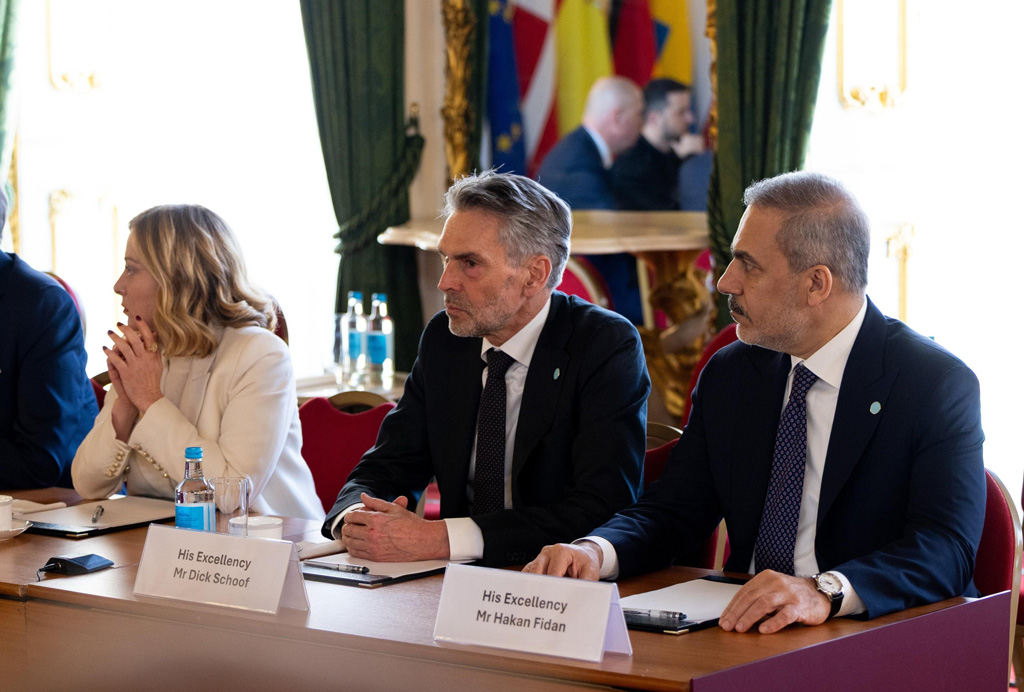
A New Age of Global Uncertainty
In the wake of rising geopolitical tensions among major global powers, rising far-right movements and xenophobia, economic protectionism and regional turf wars, nation-states are strongly reasserting themselves
Share
Following a relatively stable decade-and-a-half at the beginning of the new millennium, the international system seems to have embarked on a new period of great uncertainty. Established security alliances of the post-World War II era are gradually disintegrating at both bilateral and multilateral levels while the fledgling new ones such as the G20 do not have the capacity to replace them. The dominant discourse of market-friendly neoliberalism is losing prominence while various forms of neo-protectionism and economic nationalism rapidly gain ground. Likewise, the idealistic rhetoric of global integration and withering away of national sovereignty rapidly loses its most ardent supporters. In the wake of rising geopolitical tensions among major global powers, rising far-right movements and xenophobia, economic protectionism and regional turf wars, nation-states are strongly reasserting themselves. Welcome to the brave new world of political realists.
Donald Trump's election as U.S. president seemed to have triggered worsening trends in various realms of international relations, but there were deep-running undercurrents that just became apparent after his entry on the global stage. China's increasing dominance in global production and trade networks became a real security issue for the American state establishment, which posited that Beijing was on course to translate this economic might into military muscle. Therefore, multiple challenges against Beijing in the form of economic neo-protectionism as well as intensified security collaboration with Japan, South Korea and India were perceived as parts of a systemic attempt to encircle this giant player in Asia. Even the recent removal of Prime Minister Nawaz Sharif in Pakistan was interpreted as a move supported by Washington in an attempt to constrain the close allies of China in the region. While the focus of American foreign policy shifted to the Asia-Pacific, ongoing tensions in the South China Sea continued to produce new sources of friction, with nuclear threats from North Korea attracting increased attention.
Following a long interlude during which Chinese President Xi Jinping publicly tried to downplay rising tensions, the first symbolic response of China to perceived animosity of the U.S. was to parade its state-of the-art arsenal in an unprecedented military parade at the Zhurihe military training base in Inner Mongolia last week. While Xi indicated his "China Dream" to restore the country into a global leadership position with a world-class military force, most advanced pieces of weaponry including the new Dongfeng-31AG nuclear-tipped intercontinental ballistic missile, Dongfeng-21D "carrier killer" missile and H-6K long-range bombers were displayed to the global audience. Xi's long-term project to modernize the Chinese People's Liberation Army via massive investments in aircraft carriers, nuclear submarines and stealth fighters was certainly congruent with the goal of surpassing the international influence of the U.S. at a time of global uncertainty.
When it comes to the ever-deepening diplomatic rift between the U.S. and Russia, Trump by now seems to have been taken hostage by the Pentagon and the military-industrial complex that constantly tries to raise the stakes against Russian President Vladimir Putin. Since the imposition of economic sanctions against Russia following the military invasion of Crimea, the tone of anti-Russian rhetoric in U.S. Congress became increasingly harsher. Despite occasional collaboration in the Syrian war, accusations of Russian interference in the U.S. presidential election and private dealings of some of Trump's close associates with Russians poisoned domestic political debates in the U.S. and totally undermined the policy credibility of the president. Hence, despite the helpless efforts of Trump and U.S. Secretary of State Rex Tillerson to resolve the outstanding issues amicably with Putin, U.S. Congress codified the sanctions against Russia on the pretext of "violation of the territorial integrity of the Ukraine and Crimea, brazen cyber-attacks and interference in elections and continuing aggression in Syria." The latest congressional amendment added, "broad new sanctions on key sectors of Russia's economy including mining, metals, shipping and railways" while authorizing "assistance to strengthen democratic institutions and counter disinformation across Central and Eastern European countries that are vulnerable to Russian aggression and interference."
Putin retaliated against the Cold War-like move by deciding to expel 755 American diplomats from Moscow. This tit-for-tat game of controlled confrontation is bound to continue as long as Congress continues its "preemptive strikes" to hinder any attempts by the administration to normalize relations. As the Qatar Crisis and persistent tensions around Al-Aqsa continue in the Middle East, we should brave ourselves for a new era of perpetual global uncertainty.
[Daily Sabah, August 04, 2017]
Tags »
Related Articles
Policy Report
European Sky Shield Initiative | Capacities, Criticisms, and Türkiye’s Contribution
February 2025





